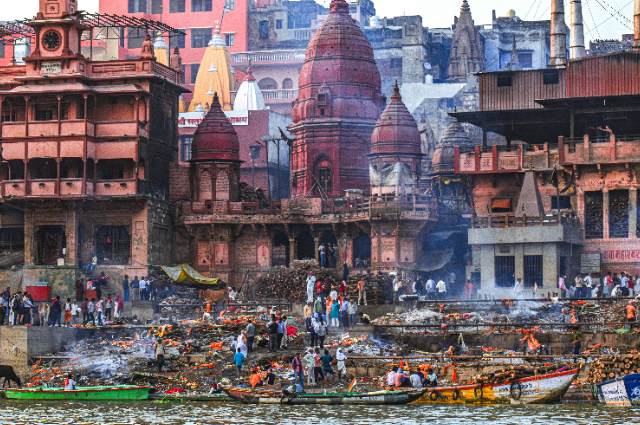
In recent years, Uttar Pradesh (UP) has witnessed a series of socio-political changes aimed at reinforcing a Hindu-centric identity, a process some refer to as the "Sanatanification" of the state. This shift encompasses the renaming of cities, incidents of violence against minorities, allegations of forced religious conversions, delays in promised mosque constructions, and a surge in hate speeches targeting the Muslim community.
- Renaming of Cities Leading to the Cultural Exodus
The UP government has undertaken initiatives to rename several cities with names reflecting Islamic heritage to ones emphasizing Hindu cultural identity. Notable examples include the renaming of Allahabad to Prayagraj in 2018, a move that has been viewed by some as an attempt to erase the city's Mughal history. Similarly, there have been proposals to change the name of Aligarh to Harigarh, further indicating a trend towards reasserting Hindu nomenclature. Critics argue that these actions contribute to a cultural exodus, marginalizing the rich, diverse history of these regions and alienating communities that have coexisted for centuries. - Violence Against Minorities
Reports have highlighted a disturbing increase in violence against minority communities in UP. Incidents of Muslims being beaten or harassed have been documented, contributing to an atmosphere of fear and insecurity among these populations. Such actions not only violate individual rights but also threaten the social fabric of the state. - Allegations of Forced Conversions from Muslims to Hindus
The state has seen allegations of forced religious conversions, particularly targeting Muslims. The "Ghar Wapsi" (homecoming) campaign, led by certain Hindu nationalist groups, aims to reconvert individuals who had previously embraced Islam or Christianity back to Hinduism. In some instances, individuals have reported being misled or coerced into participating in conversion ceremonies under pretenses, such as promises of government benefits. - Delays in Ayodhya Mosque Construction
Following the Supreme Court's 2019 verdict granting the disputed Ayodhya land for constructing a Ram temple, the Uttar Pradesh Sunni Central Waqf Board was allotted a separate 5-acre plot to build a mosque. However, as of late 2024, the mosque's construction has faced significant delays, primarily due to funding challenges and bureaucratic hurdles. In contrast, the Ram temple has progressed rapidly, leading to perceptions of disparity and unfulfilled promises towards the Muslim community. - Prevalence of Hate Speeches Against Muslims
There has been a notable surge in hate speeches targeting Muslims, particularly during election campaigns. Leaders from the ruling party have been reported to use inflammatory rhetoric, which not only incites discrimination and hostility but also normalizes abuses against minority communities. This trend has been documented by various human rights organizations, highlighting the growing intolerance and communal polarization in the state.
Conclusion: Be a Hindu, Not a Sanatani
The term "Sanatani" refers to an adherent of Sanatana Dharma, often associated with orthodox Hindu practices. While embracing one's religious identity is a personal choice, it is crucial to distinguish between practicing one's faith and imposing it upon others.
The recent developments in UP underscore the importance of fostering an inclusive environment that respects all cultural and religious identities. Being a Hindu should embody principles of tolerance, compassion, and respect for diversity, rather than an exclusionary stance that alienates and marginalizes other communities; what Sanatan has been promoted as.
In essence, the focus should be on upholding the pluralistic ethos that has long been the hallmark of Indian society, ensuring that all citizens, regardless of their religious affiliations, feel valued and secure.
